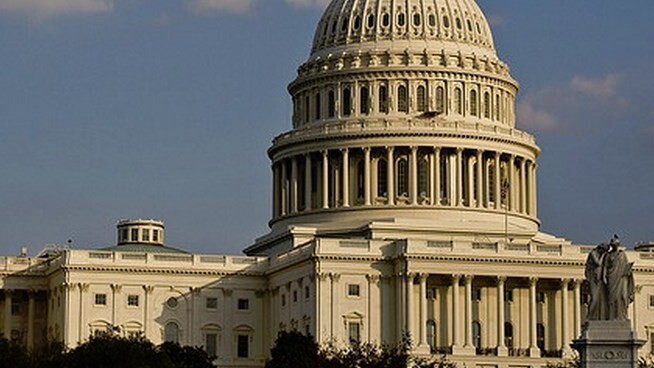
The NSA surveillance controversy continues this week, and TNW would be remiss to keep you out of the loop. However, instead of shipping a number of short posts on the most recent news, what follows is a short compendium of what you need to know. For full coverage of PRISM, and the phone records program, head here. Let’s begin.
The LIBERT-E Act
As TNW previously reported, a bipartisan bill under the name of the ‘LIBERT-E Act’ is in the works. That awkward name breaks down in the following way: the “Limiting Internet and Blanket Electronic Review of Telecommunications and Email Act.” As reported in Politico, the bill’s backers, Republican Rep. Justin Amash and Democrat Rep. John Conyers, stated the following:
We accept that free countries must engage in secret operations from time to time to protect their citizens. Free countries must not, however, operate under secret laws. Secret court opinions obscure the law. They prevent public debate on critical policy issues and they stop Congress from fulfilling its duty to enact sound laws and fix broken ones.
Their bill would increase the amount of disclosure provided to both Congress and the wider public. It’s chances of passage are unclear. It has attracted 31 co-sponsors thus far. The views of the two were articulated in a Huffington Post editorial: “[t]he government has no business stockpiling so much of our data.” We’ll track the bill and keep you informed.
50 Plots
Today General Keith Alexander, head of the NSA, stated that surveillance efforts have stopped “over 50” potential terror threats in the last decade. That is a bold claim. This comes after the General had stated that, as TNW wrote at the time, “the two previously secret programs have, as Reuters reports, ‘helped to prevent ‘dozens’ of potential terrorist events.'”
The claim is a bit suspect as when it has come to specific events that are discussed as perhaps defused using data collected from the phone record program, or PRISM, they have been circumspect. Please allow me another short quote:
Before, President Obama had indicated that a terrorist attack had been thwarted by PRISM. That attack, it came out, was a 2009 plot in New Yorkin which PRISM played a role. However, others have stated that PRISM’s role in that incident was superfluous, making the argument specious.
Thus, to state that 50 events were disrupted or avoided using NSA surveillance feels perhaps a bit high. This leads us to our next topic.
New York Stock Exchange
Sean Joyce, FBI deputy director, today pointed to Khalid Ouazzani as someone that had been stopped. The mentioned effort was the exploding of a bomb at the New York Stock Exchange. “Ouazzani had been providing information and support to this plot,” Joyce said.
As reported by Wired, Ouazzani’s lawyer disputes that, claiming that he pled guilty to money laundering, and that “Khalid Ouazzan was not involved in any plot to bomb the New York Stock Exchange.” It’s also worth noting that his plea deal mentioned no such plot.
In a real way, this appears to be another somewhat hollow example of how recently uncovered NSA programs have proved critical to national security, which is the stated reason we should allow elements of our privacy to be eroded in the face of physical danger.
Three Experts Praise Snowden
The USA Today recorded an incredible interview with three whistle-blowers who were all formerly employed at the NSA. The video is worth your time. Here’s the nub of the discussion, in the paper’s words:
They say the documents leaked by Edward Snowden, the 29-year-old former NSA contractor who worked as a systems administrator, proves their claims of sweeping government surveillance of millions of Americans not suspected of any wrongdoing. They say those revelations only hint at the programs’ reach.
That final segment mirrors what the AP reported over the weekend, that the NSA’s overall reach into the data streams of the world is far greater than what PRISM and the phone program are capable of.
Google
Breaking now is a report from the Washington Post that Google will challenge gag orders associated with Foreign Intelligence Surveillance Court data requests. The company will base its arguments on the First Amendment.
That’s what you need to know now. More as it unfolds.
Top Image Credit: Andrew Malone
Get the TNW newsletter
Get the most important tech news in your inbox each week.




